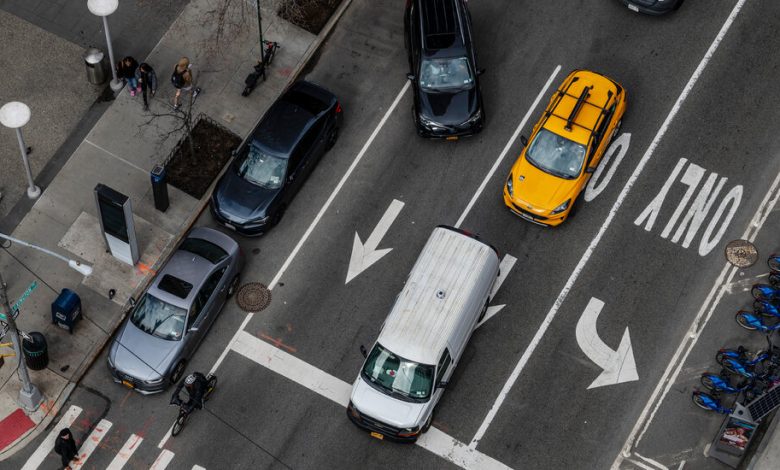How Would Congestion Pricing Work in New York City?

For decades, New York lawmakers, transit officials and environmental activists have been pushing to implement a plan to toll drivers who enter Manhattan’s core business district — a concept known as congestion pricing.
The tolling program intends to rein in traffic and pollution while improving travel speeds in some of the world’s most traffic-clogged streets. The money raised from drivers would generate $1 billion annually for the Metropolitan Transportation Authority to use to pay for critical upgrades to New York City’s transit network, which is the largest and busiest in North America.
Under the congestion pricing plan, which would be the first of its kind in the United States, most drivers would pay $15 to enter some of the city’s most famous destinations and neighborhoods, including the theater district, Times Square, Hell’s Kitchen, Chelsea and SoHo.
The tolling zone would run from 60th Street to the Battery, but would omit the Franklin D. Roosevelt Drive and the West Side Highway along the borough’s edges. Drivers of cars, buses, motorcycles and trucks would pay a rate that varies based on vehicle size and time of day.
The program has been delayed by many challenges over the years, and may yet stumble just weeks from its planned start date of June 30. Concerned that the policy might hinder the city’s post-pandemic recovery, Gov. Kathy Hochul is quietly working to delay the program, according to two people familiar with her efforts. And opponents of congestion pricing have moved to block it in court.
Here are answers to some of the most common questions about the program:
When would the tolling begin?
The tolling is scheduled to start June 30. But the plan is highly contentious, and before that planned rollout, legal and political clashes could still block it.
